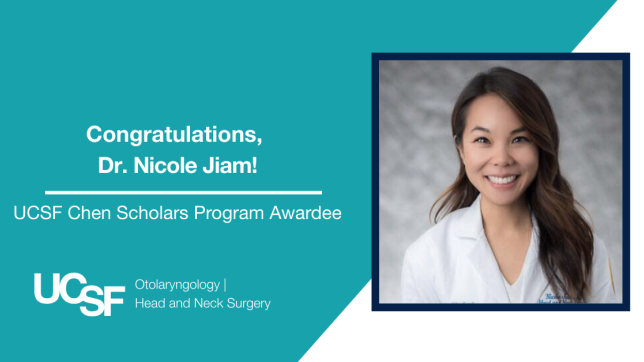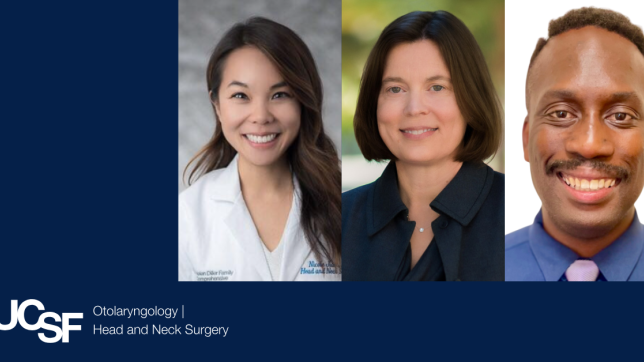Communication is one of the cornerstones of life, but sometimes, it can come with barriers. The Speech Language Pathologists (SLPs) at the University of California, San Francisco (UCSF) work every day to eliminate those barriers and make communication accessible for all. We want to take time this Better Hearing and Speech Month to highlight the work our SLPs do to make patients' lives all the better.
While some people may think of speech and language pathology as only a pediatric issue, there are numerous ways that SLPs interact with patients, aid in the recovery of different conditions and help patients achieve communication goals.
As a field, Speech Language Pathology is both specialized and broad. After all, there are many different situations that can impact someone's speech and language capabilities. A stroke can cause aphasia, which requires a speech pathologist to help with rehabilitation, or a child can be born with a swallowing issue, which may require surgery and then therapy with an SLP.
Because of the range of conditions that can lead to speech, language, voice, upper airway, and swallowing challenges, SLPs fulfill a variety of roles at UCSF. Many SLPs work within the Department of Otolaryngology and Head and Neck Surgery (OHNS). Others work in the Memory and Aging Center at the Weill Institute of Neurosciences, the UCSF Center for ASD and NDDs, the Pediatric Speech and Language Therapy Clinic at UCSF Benioff Children's Hospital, UCSF Transgender Care and elsewhere.
Within the Department of Otolaryngology, Speech Language Pathology is generally focused on the treatment of voice, swallowing, and upper airway issues through the lifespan along with serving deaf and hard of hearing children.
Services can range from assessing and treating speech and language for children before and after a cochlear implant, voice training for transgender individuals, addressing chronic cough, to optimizing voice for someone with vocal fold scarring. Changes in voice and swallowing impact those receiving head and neck cancer treatment and cancer survivors. The SLP team works closely with patients throughout their care to help maintain and optimize swallowing and communication.
There are also neurological disorders — including laryngeal dystonia, essential voice tremor, or Parkinson's disease — that impact voice and swallowing and benefit from SLP intervention. SLPs are an integral part of many multi-disciplinary teams and partner with audiologists, otolaryngologists, laryngologists, neurologists, radiation and medical oncologists to optimize patient care.
The UCSF SLPs are also active in research, with ongoing studies into topics like laryngopharyngeal sensation in patients with laryngopharyngeal disorders, gender affirming voice care, laryngeal dystonia, along with trismus and swallowing changes in head and neck cancer survivors and health disparities related to speech language services for children with hearing loss.
The SLPs are led by Sarah L. Schneider, MS, CCC-SLP, who is the OHNS Speech Language Pathology Director, co-director of the UCSF Voice and Swallowing Center, and an associate clinical professor at UCSF OHNS. She focuses on evaluation and treatment of all aspects of voice and upper airway and has special expertise and training in performing voice, gender affirming voice and communication care, laryngeal dystonia and vocal tremor.
During Better Speech and Hearing Month, which is organized by the American Speech-Language-Hearing Association, take a moment to thank the SLPs for the crucial work they do throughout the hospital. You can also get to know the SLPs at UCSF OHNS on our website.




